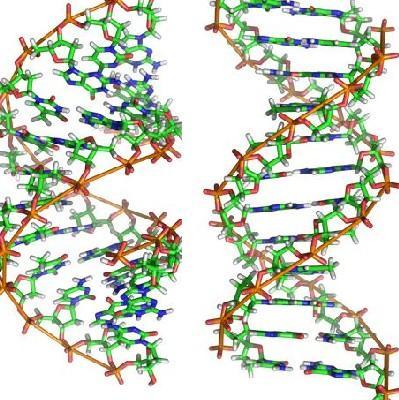The Individual and the Collective: A Discussion of Identity and Individualism
archive

The Individual and the Collective: A Discussion of Identity and Individualism
The driver appraised me as I climbed into the passenger seat of the cab. “American,” he remarked in his thick Sichuanese, pulling the car into busy traffic. The comment was not so much a question as a statement of fact. “Why, yes I am,” I replied. “But how did you know that?” “Look at you,” he laughed, “of course you are American.”
It was small exchanges like this that permeated every aspect of my life in Chengdu and led to my fascination with identity. That comment contained many assumptions about identity – both his and mine. With one word he equated ethnicity and nationality, rid me of any possibility for a more complicated existence (dual-nationalism, for one), and labeled me as a cultural other. Every day in China I was faced with my collective identities – not only my nationality, but also my race and my gender – in ways I had never been forced to deal with. Undoubtedly this was largely because of my place as a cultural and national foreigner, but there was something more there which I found intriguing. I wanted to explore the ways in which identity, and specifically personal as opposed to collective identity, was approached and viewed differently within the Chinese context.

Central to each of us and yet ambiguous in its form and composition, identity is perhaps one of the most complex and contradictory concepts studied by social scientists. It exists between a constant pull of opposing forces. It is both singular and plural, real and imagined, individual and collective, defined by sameness and by difference. Perhaps identity’s ambiguity derives from the fact that it does not simply exist, but is instead continually formed and reformed, created and shaped by the discourse of the individual and those around them. Because of the dialectical nature of identity, it is fundamentally both individualistic and pluralistic.
It is pluralistic because the individual’s identity is created through discourse and relationships with other individuals and groups (Taylor 1994: 25-35). It is individualistic because no two people will have experienced the same relationships or the same dialogue. I use both the terms “relationships” and “dialogue” here in a broad sense. These relationships range from our closest family members to acquaintances we hardly know. The ways in which these people perceive and describe us become, in addition to our own concept of self, a broad conversation of competing narratives which attempt to define us. It is through this interaction – this dialogue, if you will – that identity is created.
Perhaps identity’s ambiguity derives from the fact that it does not simply exist, but is instead continually formed and reformed, created and shaped by the discourse of the individual and those around them.
This concept of identity as a dialectical creation is an extremely modern concept; indeed, scholars such as sociologist Harvie Ferguson have argued that this concept of identity is at the very heart of our concept of “modernity,” (Ferguson 2009: 47-50). Although it was still defined by relationships, medieval society certainly did not see identity as being defined by “dialogue.” Instead, hierarchy and social place defined feudal society, which was one in which “everyone ‘knows their place’, or, better, they are determined by the place they are in,” (Ibid., 50). Our modern concept of identity, in contrast, is recognized as being created both on an individual and a collective level. Furthermore, modern identity is seen as being fluid rather than static. As sociologist and cultural theorist Stuart Hall explains, “We have now to re-conceptualize identity as a process of identification… It is something that happens over time, that is never absolutely stable, that is subject to the play of history and the play of difference,” (Hall 1991: 15).
The Social Nature of Identity and Collectivization
The dialectical nature of identity influences the creation and maintenance of collective social identities as well as individual identity. Philosopher Charles Taylor has described this process as the “politics of recognition,” (Taylor 1994: 15). He argues that identity is shaped by recognition or its absence; in other words, the way in which an individual is or is not acknowledged. Taylor’s idea of recognition can be applied to both sameness and difference. We recognize that someone has similar qualities to us, or dissimilar ones. Through realizations of sameness and difference, we create social categories and grouping that we use to define who we are. These social categories are also, like individual identity, fundamentally dialectical. What it means to belong to a certain social category, or where the boundaries are for those categories, is created in dialogue. It is tempting to see categories such as ethnicity, gender, or nationality as inflexible or “natural” categories. Indeed states, religions and other social power brokers often put great effort into making these categories seem impenetrable. In truth, however the meaning of these categories is always defined within a society. In his work on nationalism, for example, scholar Benedict Anderson has famously shown the nation-state to be a created – or want he calls “imagined” – community. The nation-state is not a natural truth, but a created political body. Despite this, a sense of nationalism has come to be seen as a primary identity category for most people around the globe. As Anderson explains, “the members of even the smallest nation will never know most of their fellow members, meet them or even hear of them, yet in the minds of each lies the image of their communion,” (Anderson 1983: 6). This concept can be applied to other identity categories as well. Just as the concept of the nation-state is fluid and dialectical, concepts such as ethnicity and even gender are also socially defined.
For individuals near the borders of social categories, those attempting to straddle or cross over social boundaries through what may be considered “pluralistic” identities, an understanding of the permeable, flexible nature of these boundaries becomes extremely significant.
It is important that states and individuals are aware of, and continue to investigate, the dialectical and socially created nature of identity. This is particularly important for those people on the margins of society. For individuals near the borders of social categories, those attempting to straddle or cross over social boundaries through what may be considered “pluralistic” identities, an understanding of the permeable, flexible nature of these boundaries becomes extremely significant. Furthermore, it is important to recognize that the dialectical nature of identity means that the identity and collective actions of minority groups are heavily dependent on the view of themselves they see reflected in the majority culture. When people do not receive “recognition”, in Taylor’s words, or when groups feel some element of their identity is under threat, this has significant impact on their social and individual identities. An awareness of the social and dialectical nature of identity is therefore critical in a diverse society.
A longer version of this article entitled, “The Individual and the Collective: A Comparison of Identity, Individualism, and Social Categorization in American and Chinese Students” may be found in theJackson School Journal of International Studies, v1. No. 1, Spring 2010.
Anderson, Benedict. 1983. Imagined Communities. London: Verso.
Ferguson, Harvie. 2009. Self Identity and Everyday Life. The New Sociology. New York: Routledge.
Hall, Stuart. 1991. “Ethnicity: Identity and Difference,” in Radical America23 (4): 15.
Taylor, Charles. 1994. Multiculturalism: Examining the politics of recognition. Princeton: Princeton University Press.



